
 Flash News
Flash News
Accident at "Shkalla e Tujanit", truck overturns in the middle of the road, driver injured
Vlora by-pass, work delays and cost increases
Milan are expected to give up on the transfer of Granit Xhaka
Inceneratori jashtë funksionit, përfshihet nga flakët fusha e mbetjeve në Elbasan
Accident on the Lezhë-Shëngjin axis, one injured
"We have never felt free from Serbia", The Gurdian report on the tensions in the north of Kosovo

Sitting behind a bare black desk in a small whitewashed room in northern Kosovo, the village's mayor, Izmir Zeqiri, is still getting used to the glare of international attention. "It wasn't my intention to become a celebrity," he says as his cell phone rings repeatedly. "We thought more people would compete and we didn't imagine we could win."
This is not false modesty. Zeqiri is one of several hundred ethnic Albanians in the Serb-majority municipality of Zubin Potok, and his candidacy in the April elections was a symbolic gesture. But when Lista Serbe, the Belgrade-backed party that controls much of public life in the Serb-majority northern municipalities, decided to boycott the election and ordered Serb voters to follow suit, Zeqiri found himself in the eye of a storm.
He won 197 votes, with a turnout of 6%, 17 more than his only opponent, so he was sworn into office last week. Albanian mayors were also sworn in in the other three northern municipalities after an even lower turnout.
Boycotting Serbs, enraged by the prospect of rule by ethnic Albanians, took to the streets after Prime Minister Albin Kurti ordered the new mayors to take their posts. Tensions were so high that senior officials had to be escorted to their offices by special police units.
On Monday, NATO peacekeepers, concerned that the fighting could escalate, sent troops into the city's town halls. They were met by demonstrators who included masked men with guns and explosives. The Z symbol now synonymous with Russia's invasion of Ukraine was also emblazoned on vehicles. Thirty NATO troops were injured.
The violence alarmed the US, Kosovo's most important international ally. Washington reprimanded Kurt for ordering mayors to their offices and called for de-escalation. To underscore the message, American Ambassador Jeff Hovenier announced that Kosovo had been removed from a joint military exercise and that bilateral relations had been damaged.
But analysts are surprised by this reaction. "It was not the Kosovo police or the government that injured dozens of NATO peacekeepers. It was Serbian armed groups,” said Toby Vogel, a regional policy analyst.
SHBA dhe aleatët e saj po e veçojnë Kosovën kur më parë kishin thënë se zgjedhjet ishin në përputhje me ligjet e vendit, shtoi ai. “Sapo ndodhi kjo, mendoj se Kurti me të vërtetë nuk kishte shumë zgjidhje përveçse të detyronte që këta kryetarë bashkie të uleshin në bashkitë e tyre.”
Kosova shpalli pavarësinë nga Serbia në vitin 2008, një dekadë pas fushatës së spastrimit etnik të presidentit serb Slobodan Millosheviç kundër popullsisë së saj shumicë shqiptare. Kjo kulmoi në luftën e viteve 1998-99, e cila përfundimisht u përfundua nga një fushatë bombardimi i NATO-s.
Shumica e vendeve perëndimore, përfshirë Britaninë e Madhe dhe SHBA-në, e njohin sovranitetin e Kosovës, por Serbia dhe aleatët e saj Rusia dhe Kina nuk e njohin. Serbët vazhdojnë të përbëjnë pakicën më të madhe të Kosovës, me rreth 5% të popullsisë së saj, dhe ata janë shumicë në katër komunat veriore.
Zeqiri, një aktivist politik në bazë i cili ka kandiduar për kryetar komune një herë më parë, anashkaloi më të keqen e trazirave duke injoruar urdhrin e Kurtit – i cili udhëheq një parti tjetër politike – për të marrë detyrën në bashkinë e Zubin Potok. Në vend të kësaj ai u vendos në Çabër, një fshat shqiptar ku nuk pati protesta.
Si shumë në Kosovë, ai beson se disa protestues janë të lidhur me krimin e organizuar. "Ishte një javë mjaft stresuese," tha ai, me nënvlerësim.
"We are still in the process of forming our new cabinet, so it was unfortunate to see the revolt that was caused by these criminal gangs ... their actions run counter to our constitutional order."
Journalists on the ground reported many attacks, threats and intimidation, which suggested more than a spontaneous grassroots uprising.
In Çaber, 62-year-old Eshref Ferizi broadly welcomed the new approach, despite the violence. He hoped this would make life easier in northern Kosovo, which has existed in a state of limbo since the war, under Belgrade's de facto control.
"We live with great uncertainty, in a constant state of stress about what will happen," said Ferizi, as he walked with his grandson to school. "In these last 20 years, we have never felt free like the rest of Kosovo".
Latest news








Golem and Qerret without water at the peak of the tourist season
2025-07-01 21:09:32

Euractiv: Italy-Albania migrant deal faces biggest legal challenge yet
2025-07-01 20:53:38
BIRN: Brataj and Fevziu victims of a 'deepfake' on Facebook
2025-07-01 20:44:00

Vlora by-pass, work delays and cost increases
2025-07-01 20:24:29



Milan are expected to give up on the transfer of Granit Xhaka
2025-07-01 19:41:25

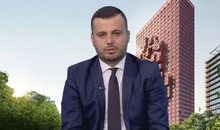
The silent but rapid fading of the towers' euphoria
2025-07-01 18:58:07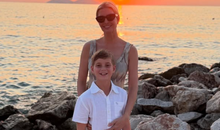
Donald Trump's daughter says 'goodbye' to June with photos from Vlora
2025-07-01 18:48:47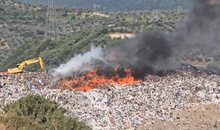
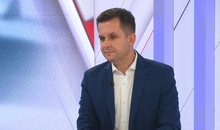
Tirana vote recount, Alimehmeti: CEC defended manipulation
2025-07-01 18:15:05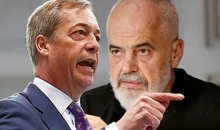
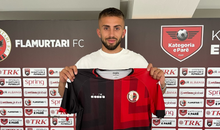
Left Flamurtari, striker signs with another Albanian club
2025-07-01 17:43:14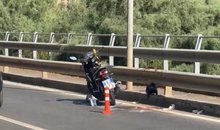
Accident on the Lezhë-Shëngjin axis, one injured
2025-07-01 17:19:35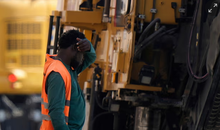
June temperature records, Italy limits outdoor work
2025-07-01 17:03:15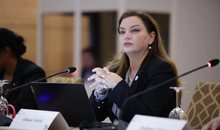

Meet Kozeta Miliku, named one of the top five scientists in Canada
2025-07-01 16:32:12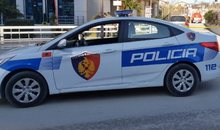
"Arsonist" arrested for repeatedly setting fires in Vlora (NAME)
2025-07-01 16:29:45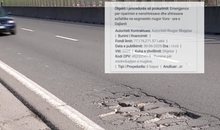
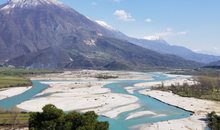
The ecological integrity of the Vjosa River risks remaining on paper
2025-07-01 16:09:40
Heat Headache/ Causes, Symptoms and Measures You Should Take
2025-07-01 16:01:13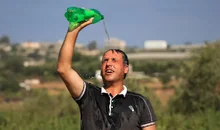
UN: The world must learn to live with heat waves
2025-07-01 15:54:50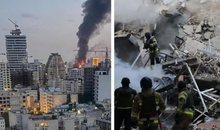
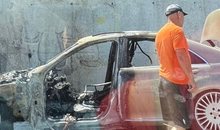
Three cars collide in Tirana, one of them catches fire
2025-07-01 15:38:16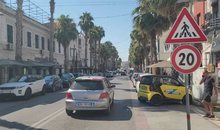
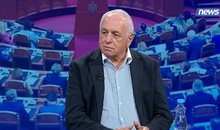
Shehu: Whoever doesn't want Berisha, doesn't want the opposition 'war'!
2025-07-01 15:19:20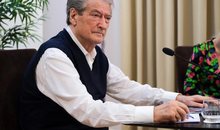
Berisha requests the OSCE Assembly: Help my nation vote freely
2025-07-01 15:11:46
Be careful with medications: Some of them can harm your sex life
2025-07-01 15:00:32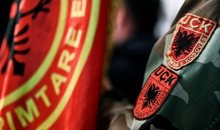
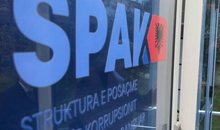
'Golden Bullet'/ Lawyers leave the courtroom, Altin Ndoc's trial postponed again
2025-07-01 14:44:52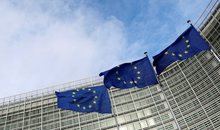
EU changes leadership, Kosovo in a number of places
2025-07-01 14:40:01
Should we drink a lot of water? Experts are surprised: You risk hyponatremia
2025-07-01 14:30:20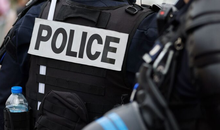
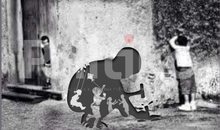
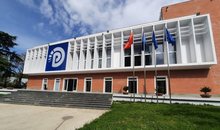
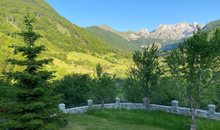
Lëpusha beyond Rama's postcards: A village that is being silently abandoned
2025-07-01 13:41:56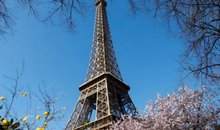
Scorching temperatures in France close the Eiffel Tower
2025-07-01 13:29:35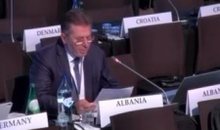
Media: China, Iran and North Korea, a threat to European security
2025-07-01 13:20:12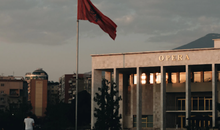
Albania drops in global index: Less calm, more insecure
2025-07-01 13:09:35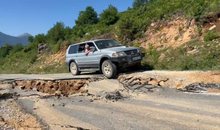
Road collapses, 5 villages in Martanesh risk being isolated
2025-07-01 13:03:04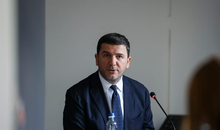
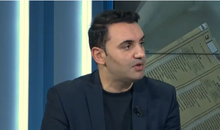
Këlliçi: Opposition action to be decided in September
2025-07-01 12:48:49
Four tips for coping with the heat wave
2025-07-01 12:38:53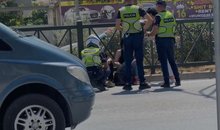
Car hits pedestrian on Transbalkan road
2025-07-01 12:27:09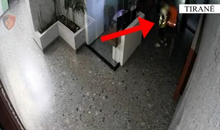
Authors of 9 robberies, Erjon Sopoti and Abdullah Zyberi arrested
2025-07-01 12:15:56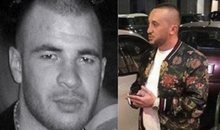
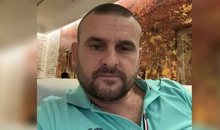
He abused his minor daughter, this is a 36-year-old man in custody in Fier
2025-07-01 11:50:34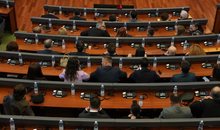
The constitution of the Kosovo Assembly fails for the 40th time
2025-07-01 11:40:08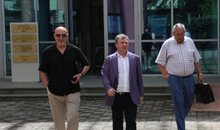

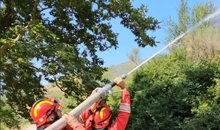

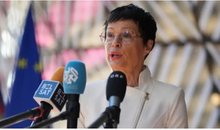
EU confirms support for the Western Balkans
2025-07-01 10:50:45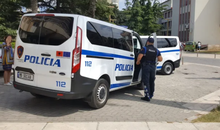
Serious in Fier! Father sexually abuses his minor daughter
2025-07-01 10:32:33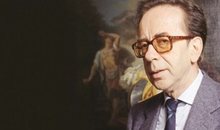
One year since the passing of the colossus of Albanian literature, Ismail Kadare
2025-07-01 10:25:26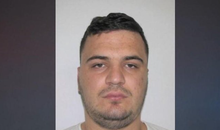

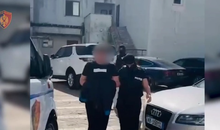
They supplied the 'spaçators' with drugs, two young men are arrested in Tirana
2025-07-01 09:54:09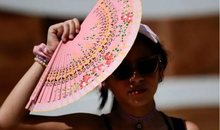
Europe is "scorching", how dangerous are high temperatures?
2025-07-01 09:48:56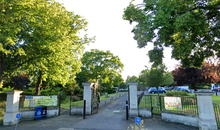
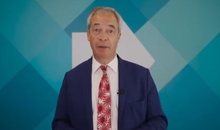
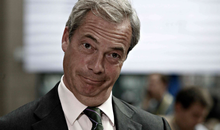
Nigel Farage in Albania: but why?
2025-07-01 09:13:12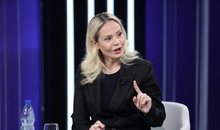
Xama: The "Partizani" dossier is quite weak and without facts!
2025-07-01 09:04:47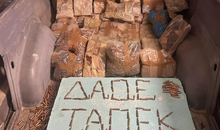

Foreign exchange, the rate at which foreign currencies are sold and bought
2025-07-01 08:35:39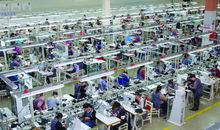
Fabricators again warn of factory closures and job cuts
2025-07-01 08:21:30
Horoscope, what do the stars have in store for you today?
2025-07-01 08:08:59
Scorching hot, temperatures reaching 40°C
2025-07-01 07:57:12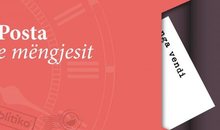
Morning Post/ In 2 lines: What mattered yesterday in Albania
2025-07-01 07:42:59
Recount after May 11, Braho: I had no expectations for massive vote trafficking
2025-06-30 22:54:18

Second hearing on the protected areas law, Zhupa: Unconstitutional and dangerous
2025-06-30 22:18:46



Israel-Iran conflict, Bushati: Albanians should be concerned
2025-06-30 21:32:42

Fuga: Journalism in Albania today in severe crisis
2025-06-30 21:07:11
"There is no room for panic"/ Moore: Serbia does not dare to attack Kosovo!
2025-06-30 20:49:53

Temperatures above 40 degrees, France closes nuclear plants and schools
2025-06-30 20:28:42
Lavrov: NATO is risking self-destruction with new military budget
2025-06-30 20:13:54
Turkey against the "Bektashi state" in Albania: Give up this idea!
2025-06-30 20:03:24

Accused of sexual abuse, producer Diddy awaits court decision
2025-06-30 19:40:44


